Why Does My Cat Stare at Me? And How to Respond?
Cats are known for their enigmatic behavior, and one of the most puzzling things that cat owners often encounter is their cat’s tendency to stare at them. If you’re a cat owner, you’ve probably wondered at some point, “Why does my cat stare at me?”
Cats usually communicate with you through several means, including gazing. When your cat stares at you, it could be a sign of affection, curiosity, desire for attention, feeling anxious or stressed, exhibiting predatory instincts, or having medical issues. Additionally, they could be waiting for an indication that might involve them staring at you.
In this article, we’ll explore the different reasons why cats stare and what their staring behavior might indicate about their emotions or physical health.

Understanding Cat Behavior
To understand why cats stare, it’s important to know the basics of feline behavior. Cats are communicative creatures and use various forms of body language to convey their intentions and emotions.
Types of Staring
The staring behavior of cats can be classified into several types. These include:
- Slow blink: A slow blink is a sign of affection and trust. When a cat blinks slowly at you, they’re essentially saying, “I feel safe and relaxed around you.”
- Staring with dilated pupils: This staring can indicate fear, anxiety, or excitement. The dilated pupils of your cat may indicate that it feels threatened or overwhelmed.
- Intense stare: An intense stare can be a sign of predatory behavior. If your cat is staring at you intensely and crouching low to the ground, it may be preparing to pounce.
Reasons Why Is My Cat Staring At Me
Many cat owners have noticed their pets staring at them, which is one of cats’ most common enigmatic behaviors. Even though this can be endearing and cute, it can also be alarming and disconcerting.
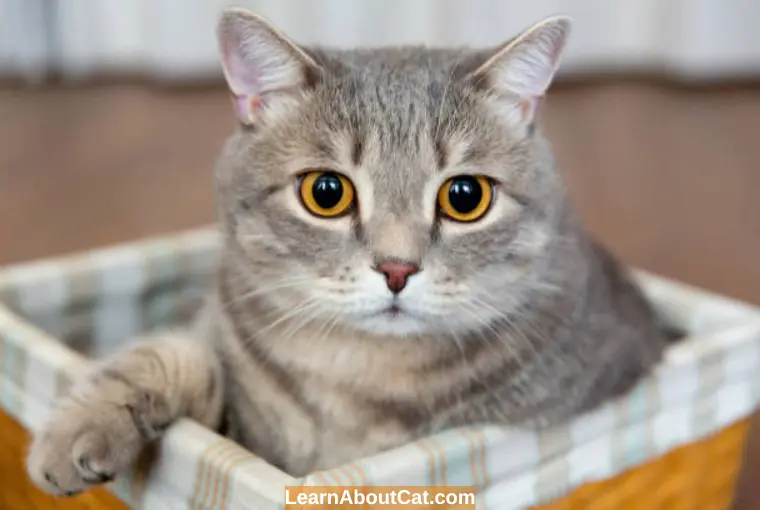
1. Your Cat is Trying to Communicate With You
Occasionally, cats will gaze at you to express their sentiments. Most cat owners wish their cats could communicate with them, and they do, but mainly through nonverbal means. They employ various nonverbal communication methods, including staring, facial expressions, body posture, ears, whisker position, and more!
Cats are known for being good at communicating with their owners through body language and vocalizations. A cat that stares at you may be attempting to communicate something important. There might be a message that your pet is hungry, in need of attention, or wants to play with you.
If you notice your cat staring at you, try to observe its body language and see if it’s trying to tell you something.
2. Your Cat is Showing Affection
Cats can be incredibly affectionate creatures, despite their reputation for being aloof. When your cat stares at you, it could be a sign that it loves you and is showing its affection. Some cats will even blink slowly at their owners, which is a sign of trust and affection.
If the cat glances at you and her body language are free and relaxed, you may fairly believe she’s pleased and only trying to gain your attention or indicate she loves you. It’s safe to think she’s happy and displaying affection if she’s snuggling up next to you and blinking slowly in addition to her gaze.
3. Cat Wants Your Attention
One common reason why cats stare at their owners is that they want attention. Cats are social creatures and often seek out interaction with their human companions. If your cat is staring at you, it may be trying to get your attention, hoping you’ll pet them or play with them.
Alternatively, he/she could be attempting to wake you awake. This kind of body language indicates that he/she wants your attention, whether he/she wants his breakfast immediately now or wants you to get up and join him.
4. Your Cat is Curious
It is natural for cats to be curious about their surroundings and enjoy exploring them. When your cat stares at you, it could be because it’s curious about what you’re doing or what you’re holding. Possibly, your cat is attempting to determine whether you pose a threat to it or not.
If your cat is staring at you with a straight posture and erect ears, it could be a sign of alertness or curiosity. Conversely, a cat with a hunched posture and flattened ears may be displaying aggression or fear.
5. Anger-Based Body Language
If a feline’s tail is whooshing, she may be dissatisfied, so her ears are cocked to the side, and her pupils are dilated. She could be attempting to inform you that she needs some space in this scenario.
If this happens, attempt to divert your cat’s interest to something else. To assist in relieving stress and breaking eye contact, toss a toy or small object across the room and encourage your cat to follow it down. You can try engaging her in an activity she enjoys once she looks to have calmed down.
Also, Check Out: Do Cats Get Mad At You?
6. Anxiety or Stress
If your cat is looking at you with dilated pupils and her tail hidden beneath a couch or other piece of furniture, it might be a sign of terror.
Loud noise can startle your cat, such as cheering at a sports game or unintentionally dropping a frying pan. In these circumstances, she could be looking to keep an eye out for danger.
Likewise, avoid directly approaching her to help relieve her anxieties. Instead, toss some of her favorite snacks her way, like the delectable alternatives in Friskies Party Mix.
If your cat is staring at you in this way, it’s important to try to identify the source of their anxiety and take steps to address it.
7. Predatory Instinct
Sometimes, cats may stare at their owners with an intense, focused gaze. Whenever they display this behavior, they indicate they are feeling predatory and preparing to attack.
While this behavior can be alarming, it’s important to remember that cats are natural hunters and may exhibit this behavior even if they’re well-fed and not actually planning to hunt anything.
Inherently, cats are curious creatures, and as prey and predators, they are always interested in what is going on in their environment. They may be simply watching you; perhaps you’ve just started moving after sitting for a while, and the movement in the house has caused them to shift their attention to you.
8. Health Issues
Cats staring is common, but it may also mean something more serious. Here are some signs that your cat’s staring may indicate a problem:
- Unusual Duration of Staring: If your cat’s staring seems to be prolonged and excessive, it could be a sign of a medical problem. Cats may sometimes stare for an extended period due to neurological issues, eye problems, or even pain.
- Aggressive Staring: If your cat is aggressively staring at you, it could be a sign of a behavioral problem. Aggressive staring could be a sign of territorial behavior or even a warning before an attack. It’s essential to monitor your cat’s behavior closely and seek the advice of a veterinarian or animal behaviorist if you notice any signs of aggression.
- Lack of Response to Stimuli: If your cat is staring at you or something else and does not respond to stimuli, it could be a sign of a neurological issue. Cats that stare and do not respond to noise or movement may be suffering from seizures or other neurological conditions.
- Disorientation: If your cat is staring at you but seems disoriented or confused, it could be a sign of cognitive dysfunction or other age-related issues. As cats age, they may develop problems with memory or spatial awareness, which can lead to disorientation and staring.
If your cat is acting strangely, you must monitor its behavior and consult a veterinarian or animal behaviorist. Early detection and treatment of underlying medical or behavioral issues can help ensure your cat’s long-term health and well-being.
9. Cat’s Staring May Indicate Something More Serious
While staring is usually harmless, it’s essential to be aware of signs that your cat’s stare may indicate something more serious. If your cat’s stare is accompanied by hissing, growling, or other aggressive behavior, it could be a sign of fear, anxiety, or illness.
If you notice a change in your cat’s behavior or stare, you should first contact your veterinarian.
How to React to Cat Staring?
When your cat stares at you, it can be challenging to know how to react. Here are some ways to respond to cat staring:

1. Responding positively
If your cat is staring at you for affection, responding positively can help reinforce the behavior. You can do this by petting your cat or offering them a treat.
Responding positively to your cat’s staring behavior can help strengthen your bond with your cat and increase its trust in you.
2. Acknowledge Your Cat’s Presence
Cats usually stare at their owners to communicate or seek their attention. You can acknowledge your cat’s presence by making eye contact, talking to them, or even giving them a gentle pet.
- Don’t stare back: While making eye contact is a way to acknowledge your cat, staring back for too long can make your cat uncomfortable or feel threatened. It’s a sign that your cat wants you to back off if they look away.
3. Ignoring
One way to react to cat staring is to ignore it. If your cat is staring at you for attention, ignoring the behavior can help discourage it. However, ignoring the behavior may worsen the situation if your cat is staring at you due to anxiety or stress.
It’s important to evaluate your cat’s behavior and the situation before deciding to ignore the staring.
4. Observe their Body Language
Cats often communicate through their body language, so pay attention to their posture and movements while staring at you. When their ears are pinched back or their tail twitches, it could indicate that they are stressed or agitated.
- Give them space: If your cat seems uncomfortable or is showing signs of stress, it’s best to give them some space and let them come to you on their own terms
5. Redirecting Attention
Another way to respond to cat staring is to redirect your cat’s attention. You can do this by offering your cat a toy or treat or engaging them in play.
Redirecting your cat’s attention can help break the staring behavior and help your cat release any pent-up energy or frustration.
6. Seeking Veterinary Care
If your cat’s staring behavior is persistent, prolonged, or accompanied by other symptoms, seeking veterinary care is essential.
A veterinarian can help determine the underlying cause of the behavior and develop an appropriate treatment plan. Seeking veterinary care can help ensure your cat’s long-term health and well-being.
Should I be Worried if My Cat Stares at Me?
In most cases, there’s no need to worry if your cat stares at you. When he displays these behaviors, he usually shows affection, curiosity, or a desire to be noticed. It’s always a good idea to consult your veterinarian if you notice any other unusual behavior in your cat.

Should I Stare Back at My Cat?
Staring back at your cat can be interpreted as a challenge or threat, escalating the staring behavior or leading to aggression. While staring at your cat at first may seem amusing, the more you do it, the less relaxed your cat will get.
You should not return your cat’s gaze since cats see it as a sign of anger. When you stare at a cat, it might become afraid, furious, and suspicious.
Instead, redirect your cat’s attention or respond positively to their behavior by offering treats or affection.
What Should I Do if My Cat Stares at Me for a Long Time?
If your cat stares at you for a long time, try to observe its body language and see if it’s trying to communicate something. If your cat seems to be trying to get your attention, engage with it by playing or petting it.
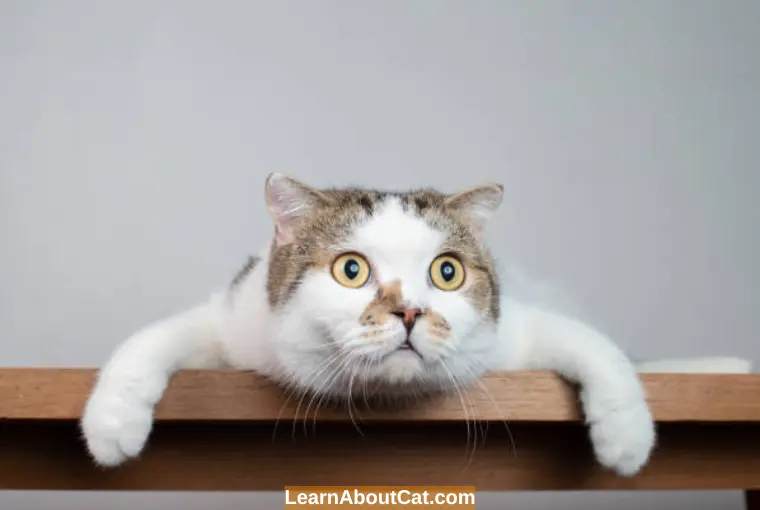
What if My Cat’s Staring is Accompanied by Aggression?
If your cat’s staring behavior is accompanied by aggression, such as hissing, growling, or swatting, it’s essential to evaluate their body language and seek professional advice from a veterinarian or animal behaviorist.
Aggression can indicate underlying medical issues, anxiety, or territorial behavior that requires professional intervention.
When Should You Make a Request or Wait for a Cat Cue?
A cue is a signal that causes someone to act specifically. Cats are continually learning, teaching them even if we aren’t aware of it. When you first get up, for example, and pull out the can opener, your cat runs to greet you.
Over time, the cat has developed a favorable link between the can opener and an excellent breakfast, and the can opener has become a trigger for the cat to approach you and look at you.
Another example is that your cat may have gazed at you in the past, and you mistook it for a request to play, pet, or feed them. They’ve figured out that making eye contact (staring) with you gets them something they want, so they’ll keep doing it, e.g., food, petting, etc.
Why Do Cats Have a Spooky Appearance?
Like many other nocturnal animals, cats have a layer of tissue behind their retinas known as the tapetum lucidum. The tapetum lucidum functions as a mirror, reflecting light and allowing the cat to see as if it were shining a spotlight on the area in dim lighting.
Frequently Asked Questions
Why does my cat keep staring at me while I sleep or in the early morning hours?
Your cat might simply be expressing its deep affection for you if it stares at you while you sleep. She is expressing her love if she is purring, head butting, blinking slowly, and rubbing her face.
If your cat’s staring behavior is accompanied by other symptoms, such as pacing or vocalization, seeking veterinary care is recommended.
How long can a cat stare at its owner?
Cats can stare for extended periods, especially when they’re focused on something they find interesting or stimulating. However, if your cat’s staring behavior is persistent or prolonged, it’s essential to evaluate their body language and seek professional advice if you’re unsure how to respond to the behavior.
Can cats stare out of boredom?
Like people, cats may become bored. This may often lead to self-destructive behaviour worse than stalker-like behaviour. Boredom can cause cats to stare, especially if they lack mental and physical stimulation.
A cat’s boredom can be relieved, and staring behavior can be reduced with toys, scratching posts, and interactive playtime.
What’s the point of never looking a cat in the eyes?
If you look a cat in the eyes, it will attack you. Your cat may attack you if it perceives eye contact as a threat. That is the last thing any cat owner wants to happen since it might become a habit. They may understand it later. They may ultimately mistake any form of eye contact for aggression, even if it isn’t staring.
What’s the harm in looking at a cat in the eyes?
Cats have a strong sense of self-awareness. When a cat recognises it is being observed, it may analyse the threat before returning to what it was doing, but with greater self-awareness. Your cat may be intimidated by the direct eye contact, making him feel uneasy.
Wrap Up!
It is fascinating to observe how cats communicate with their owners in their own unique way. When your cat stares at you, it could be a sign of affection, curiosity, or a desire for attention.
Cats stare for various reasons, and understanding these causes will help you build stronger bonds with your feline friend. So the next time your cat stares at you, don’t be afraid to engage with it and see what it’s trying to tell you.
If your cat’s staring behavior is persistent, prolonged, or accompanied by other symptoms, seeking veterinary care is essential. Veterinarians can assist in determining the underlying cause of the behavior and developing appropriate treatment options.
Related Posts:
- Why Does My Cat Sleep On Me?
- Why Does My Cat Bite Me?
- Why Does My Cat Lick Me?
- Why Does My Cat Bunny Kick Me?
- Why Does My Cat Reach His Paw Out to Me?
- Why Is My Cat Hissing at Me All of a Sudden?
- Why Does My Cat Make Biscuits On Me?
- Why Does My Cat Follow Me Everywhere And Sleeps With Me?
- My Cat Sits Next To Me But Not On My Lap
Who is Isabella?
My name is Isabella, and I am a dedicated and knowledgeable cat enthusiast. With years of experience caring for cats and a deep love for felines, I made a mission to help other cat lovers navigate the challenges of cat ownership.

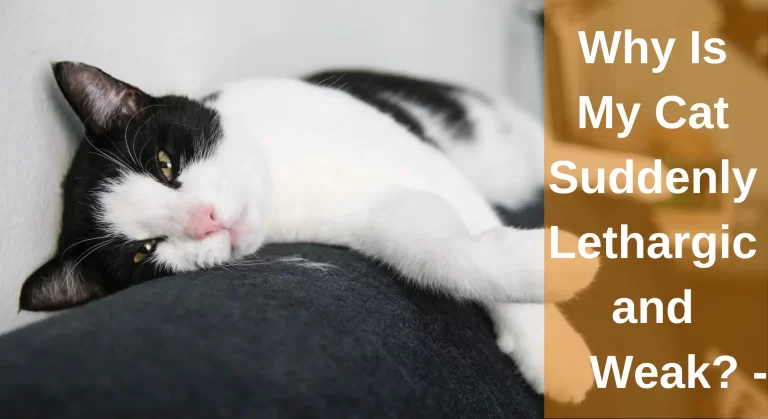

![Why Is My Nursing Cat Always Hungry? [Answered]](https://learnaboutcat.com/wp-content/uploads/2023/07/Why-Is-My-Nursing-Cat-Always-Hungry-768x419.webp)
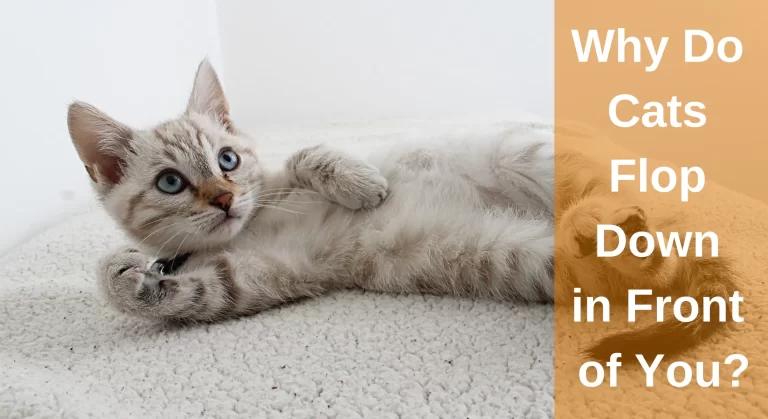
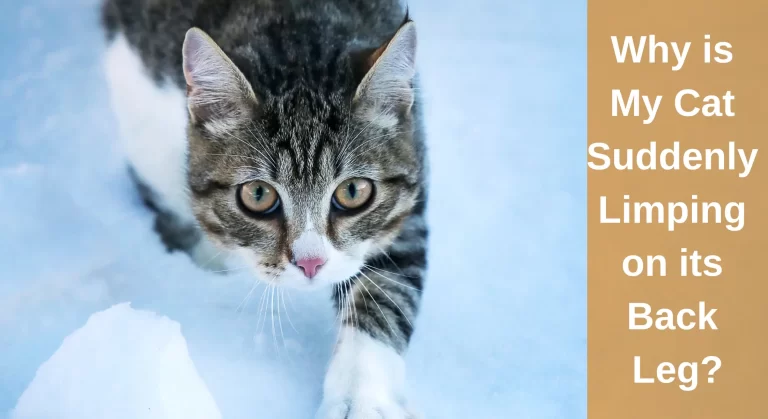
![Why Is My Cat So Affectionate All of a Sudden?[Answered]](https://learnaboutcat.com/wp-content/uploads/2022/08/Why-Is-My-Cat-So-Affectionate-All-of-a-Sudden-768x419.webp)